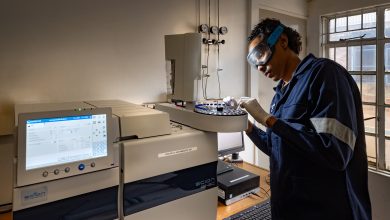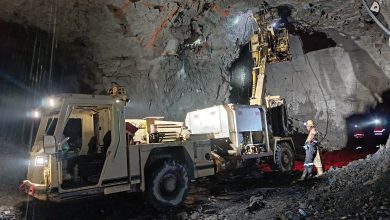
The role of mining in strengthening South Africa’s position within BRICS
By Jacques Farmer, Managing Director of PRISMA Training Solutions
South Africa’s membership in the BRICS economic bloc, comprising Brazil, Russia, India, China, and South Africa, offers a unique platform to capitalise on our nation’s substantial mineral reserves. As the sole African representative, South Africa serves as a conduit to the continent’s abundant natural resources.
The mining sector, a pivotal driver of the South African economy, is poised to significantly benefit from heightened investor involvement within the BRICS framework, opening new avenues for expansion and delivering a multitude of socio-economic advantages.
Strategising South Africa’s mineral wealth
South Africa is home to a remarkable endowment of mineral resources, including gold, platinum, and rare earth metals, all of which are critical for various industries like manufacturing and renewable energy. Within BRICS, this mineral wealth has the potential to solidify trade ties and attract major Foreign Direct Investment (FDI).
Investor participation in mining through BRICS partnerships offers several advantages, including capital inflow, access to advanced technology and expanded markets. FDI can modernise mining operations, significantly boosting productivity and export capabilities. Collaboration within BRICS enhances access to efficient and sustainable mining technologies, which can promote environmental responsibility, while BRICS economies represent new and expanding markets for South Africa’s mineral exports, which will foster economic diversification. Additionally, such investments can drive employment opportunities and skills development programmes, which will accelerate socio-economic progress.
Looking beyond resources – leaning into South Africa’s expertise
While the abundance of mineral resources positions South Africa strategically, its contribution to BRICS should not be limited to mere resource extraction. South Africa has a long and distinguished history in mining, amassing a wealth of expertise in areas like mine management, geology, and safety protocols. This knowledge and experience can be invaluable for developing the mining sectors of other BRICS nations.
The South African mining industry places a strong emphasis on safety, with a well-established regulatory framework and a consistent focus on improving safety practices through continuous learning and skills development. This emphasis translates into a highly skilled workforce with a strong safety culture. South Africa has developed comprehensive training programmes that equip mineworkers with the knowledge and skills necessary to work safely in challenging environments. These programmes cover a wide range of topics, including hazard identification, risk assessment, emergency response procedures, and the use of safety equipment.
This expertise in mining-specific skills development and training can be invaluable for other BRICS nations seeking to enhance safety standards within their own mining sectors. South Africa can share its best practices in safety training and workforce development, assisting other member nations in developing and implementing effective safety programmes that prioritise the well-being of their miners. By sharing its knowledge and expertise, South Africa can contribute to a safer and more sustainable mining sector across the entire BRICS bloc.
Working together – skills development and technology transfer
The exchange of knowledge and expertise within BRICS can be mutually beneficial. For example, South Africa can share its expertise in underground mining with China, while learning about AI-powered mining technologies. Collaboration with India can focus on sustainable mining practices, incorporating environmental protection and renewable energy. Partnerships with Russia can involve developing advanced materials and utilising satellite imagery for exploration.
With Brazil, South Africa can exchange knowledge on mine ventilation and hydrometallurgical processes. Finally, establishing a regional centre of excellence within BRICS can facilitate the exchange of knowledge and technologies across the bloc. Such a collaborative approach can revolutionise mining practices across BRICS, promoting efficiency, safety, and sustainability.
The road ahead depends on strategically leveraging resources
To solidify its position within BRICS, South Africa must prioritise strategic initiatives. Firstly, investing in robust human capital development strategies across BRICS nations is vital. This involves championing the development and implementation of high-quality training programmes for mineworkers, ensuring they possess the skills necessary for safe and efficient operations.
Secondly, advocating for the implementation of standardised mining regulations and mandatory skills development programmes within the bloc will ensure responsible and sustainable mining practices. Finally, by capitalising on its extensive mining experience and expertise, South Africa can position itself as a knowledge hub within BRICS, fostering collaboration and knowledge exchange among member nations.
By strategically leveraging its mineral resources, fostering skills development across BRICS, and embracing technological advancements, South Africa has the potential to become a key player within the alliance. This, in turn, can contribute to the broader BRICS goals of economic collaboration, shared prosperity, and the responsible development of the natural resource sector.
Managing the uncertainty of the United States factor
The growing influence of BRICS within the global order presents a nuanced dynamic for South Africa’s relationship with the United States. While some may perceive BRICS as a potential challenge to US dominance, South Africa can navigate this complex terrain by strategically emphasising its commitment to responsible mining practices and fostering mutually beneficial trade partnerships with both blocs.
By prioritising environmental sustainability, ethical labour practices, and adherence to international standards within its mining sector, South Africa can alleviate US concerns regarding potential negative impacts of BRICS engagement. This approach fosters trust and cooperation with the US while demonstrating a commitment to responsible global citizenship.
Furthermore, South Africa can actively pursue diversified trade relationships with both BRICS and the US. This balanced approach will allow South Africa to leverage the economic opportunities presented on all sides, maximising its access to global markets and minimising dependence on any single economic power. By fostering strong economic ties with both BRICS and the US, South Africa can contribute to a more balanced and interconnected global economy while addressing the complexities of the changing geopolitical landscape.






